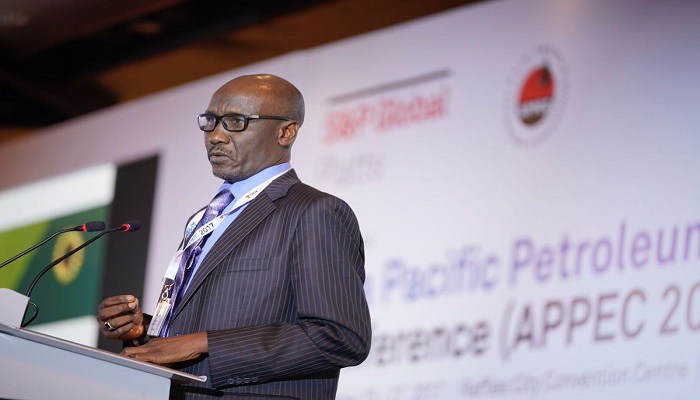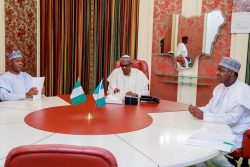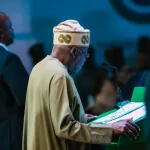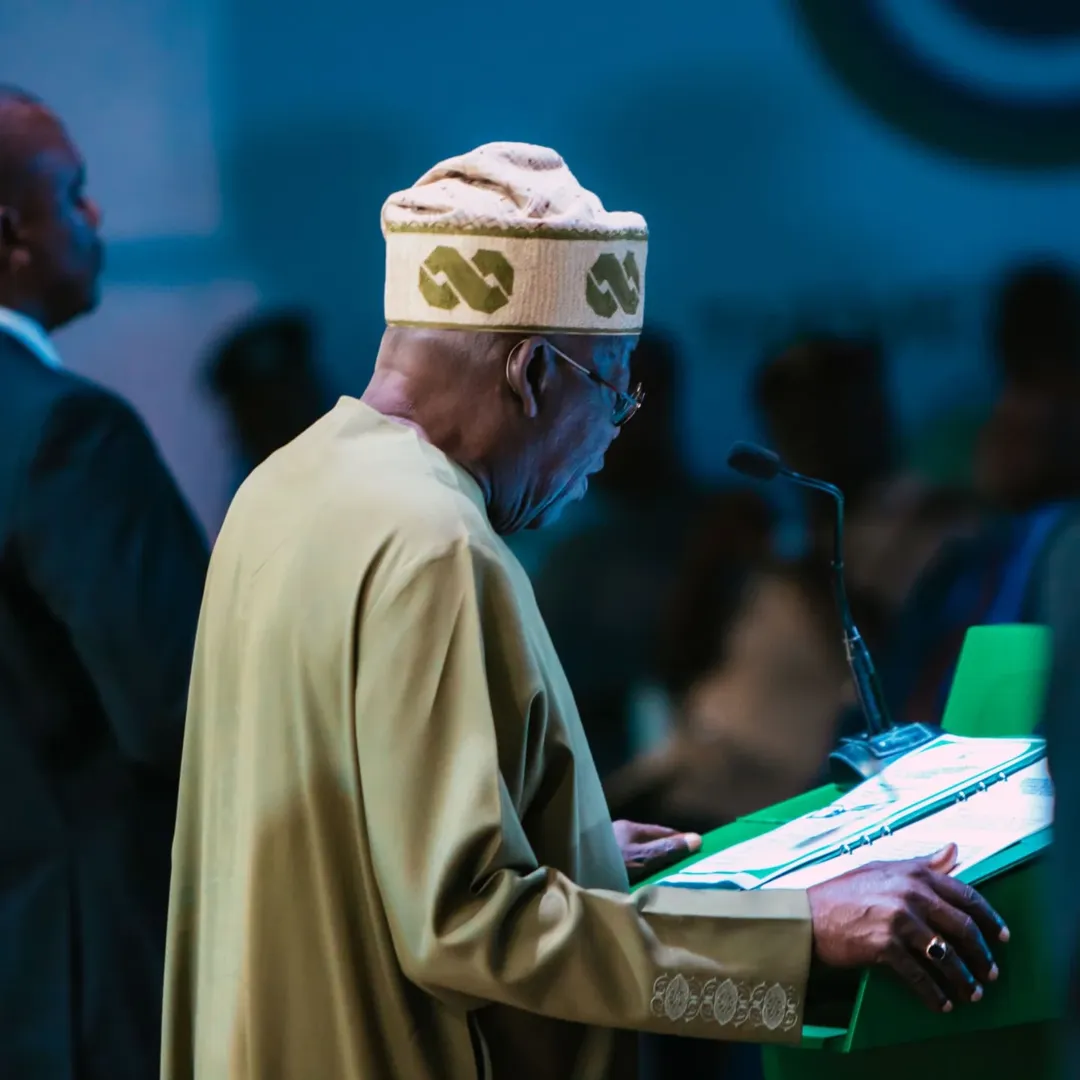[dropcap]T[/dropcap]he Crude Oil Marketing Division, COMD, of the NNPC under Mele Kyari has achieved 98 per cent automation of all transactions involving the supply, marketing and sale of the various grades and blends of Nigeria’s crude oil across the world.
From the raft of measures carried out so far, he has position the crude oil marketing division towards the path of growth and transparency. Kyari, who is the Group General Manager in charge of Crude Oil Marketing Division, has left no one in doubt that he is determined to break away from the past and open up the books and operation of the company to public scrutiny.
Kyari, has introduced what is called ‘Marketing by Automation’ to counter the perceived mystery around the management and sale of Nigeria’s crude oil grades with introduction of innovative solutions that is currently triggering a gale of transparency and boosting stakeholders’ confidence in the operations of the Crude Oil Marketing Division.
“Today, at a click of a button we can tell you how much crude oil is sold, at what price, who bought it and where it has gone to etc,’’ Kyari said in an interview with NNPC magazine, a quarterly publication.
The aim of the Crude Oil Marketing Division is to achieve an end-to-end monitoring of every barrel of crude oil sold in the country.
“ The openness so far is demonstrated by two things: first the trust that it has created and you now see stakeholders who ordinarily don’t believe in our processes with major international upstream companies are now participating in our open bid process, said Kyari, who also doubles as Nigeria’s representative to OPEC.
“For us that is a signal of a greater acceptance of the accountability of our processes. A number of these companies now know what we are doing. For instance, this year we have 254 applicants, that is a lot higher than 224 or so we had in 2015. We see greater interest in the work we are doing so in that respect, it has brought respect to our company and the whole world now knows that we operate a more transparent process.”
‘’I know these were the great challenges we were facing and when I came on board, I reckoned that these were key areas I should focus on,’’ he said.
To navigate through the identified challenges, Kyari and his team reckoned that apathy, happens when people don’t know what you are doing, so tackling the problem required a massive dose of transparency.
‘’This is the age of electronics and computers, when you are automated, your systems are more efficient, faster and more easily auditable by stakeholders and therefore once you have that, you are going to address the stakeholder apathy. It makes your work easy,’’ he said.
At a recent policy dialogue on crude oil sales and reserve management in Nigeria organized by the African Centre for Leadership, Strategy and Development, participants noted that the prevailing open bid process for the annual crude term contract has helped to douse the air of mystique around the process.
Notables like Dr. Dakuku Peterside, Director General of NIMASA, Hassan Bello, Executive Secretary Nigerian Shippers’ Council and other participants, were unanimous on the new wave of openness and reforms in the industry on matters pertaining to administration of crude oil grades.
Despite the impressive comments, Kyari believes that it is still a work in progress for COMD noting that until all the set targets are met, the struggle continues.
‘’Today we are focused on making sure that all our systems are fully automated and our processes are fully documented. Once we have achieved that the rest will just be like autopilot, we are almost very close to the dreamland’’.
“You have to understand that the assumption that all that we do in Crude Oil Marketing Division is selling of crude oil, is not correct. In reality, what we do is that we run the business aspects of this Corporation.
“First of all we have to secure the entitlements of the Federation. That is the most critical aspect of our job. So we have to work with our partners, with NAPIMS, with the Finance Division to make sure that at the end of every morning we know how much volume the corporation will be entitled to, and that’s a very tedious process.
“You have to know the cost of operation, who is producing what, what are the leakages that are in the system, how much progress and losses are there and so on. So you have a clearly technical business part of this Division that deals with that so that at the end of the day we are able to have a landing most especially in terms of commercial numbers through technical considerations to tell us that this is the volume that is due to the Corporation. This is the nature of our job.
“ We have clearly what we call the Crude Oil Stock Management Department that handles that and then they advise us on the amount of volume the Federation is entitled to and from there you have to sell it. That means you have to select your customers through a transparent tender process then we now have a Shipping and Terminal department that will advise us on whose turn it is to buy from us, who has the right to lift etc.
“ The Shipping &Terminals Division helps in determining the numbers. They handle the relationship between us and our terminal operators. They also determine if we have secured all the necessary clearances from all the regulatory agencies.
“ You now have another level of marine related activities that has to do with sorting out some of the fine details in this regard.
“ Now you come to the Commercial Department. First, they have to evaluate the cargo following the contract we have with the customer. They evaluate together with the customer so that at the end of the day we now relate with their banks on the amount of money that they are going to pay to the federation account etc.
“ After that, the Finance department steps in to make sure that these statements are correct, that they are properly evaluated, and also that they are current with the necessary accounts and the date that it is due.
“ Then we report to the Federation Accounts Allocation Committee on monthly basis that this is how much we have sold, this is the volume that has come, this are the next position that we have taken, we are owing this gentleman or this gentleman is owing us and all these are completely captured by the Finance and Accounts in addition to their other obligations in the Division but this is the critical thing that they do.
“ On top of this, we have a Regulatory and Compliance Department which makes sure that everything I have told you from the Crude Oil Stock Management to the Shipping and Terminals to the Commercials and to the Finance Department are all within the laid down regulations of the Corporation and of the business and of the contracts that we have in place. We have a Legal Department which provides legal scrutiny and advice on all our contracts.
“ In addition to all the internal processes that I have highlighted, all our transactions are visible to the Central Bank of Nigeria, all the accounts that we operate are resident in the Central Bank of Nigeria.
“ Altogether, that is not to say that there was no transparency, but the key issue is that there was third party intervention, the NGOs and so on, and they all want to know and everybody wants to see how transparently you are in running your business and we just responded to that. That is not to say that it was all wrong in the past but there is now a greater need for inclusion of stakeholders in our processes and that is why we usually have the bid open to all.























Leave a comment